

Trends
Collaborations
"Discipline Construction of Classical Studies" with a Dialogue among Seven Scholars: Roundtable Discussion at the 11th National Classical Studies Annual Conference
2024-06-20
Sourced from WeChat Official Account: Research in Classics
On June 16, 2024, Sun Yat-sen University hosted the 11th National Classical Studies Annual Conference, featuring a roundtable discussion centered on the theme of "Discipline Construction of Classical Studies". Seven scholars engaged in a lively discourse on the development of classical studies and the challenges faced in its discipline development. Below is the complete transcript of the speeches delivered during this roundtable discussion.
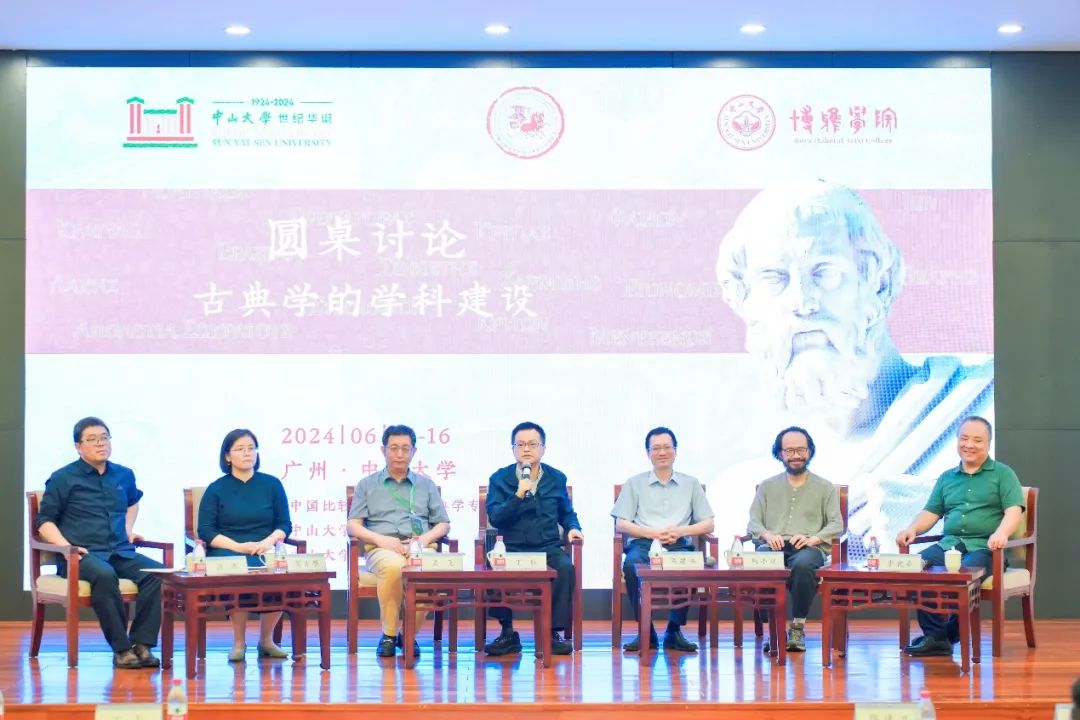
Hong Tao: Good morning, dear colleagues. The theme of our upcoming roundtable discussion is the "Discipline Construction of Classical Studies". Our introductory speaker is Researcher He Fangying, Research Fellow from the Chinese Academy of Social Sciences. The speakers include Professor Wu Fei from Peking University, Professor Ding Yun from Sun Yat-sen University, Professor Chen Jianhong from Sun Yat-sen University, Professor Ke Xiaogang from Tongji University, and Professor Li Changchun from Sun Yat-sen University. Now, let us first invite our introductory speaker, Research Fellow He Fangying, to address us.
He Fangying: "Has the era of classical studies arrived?"
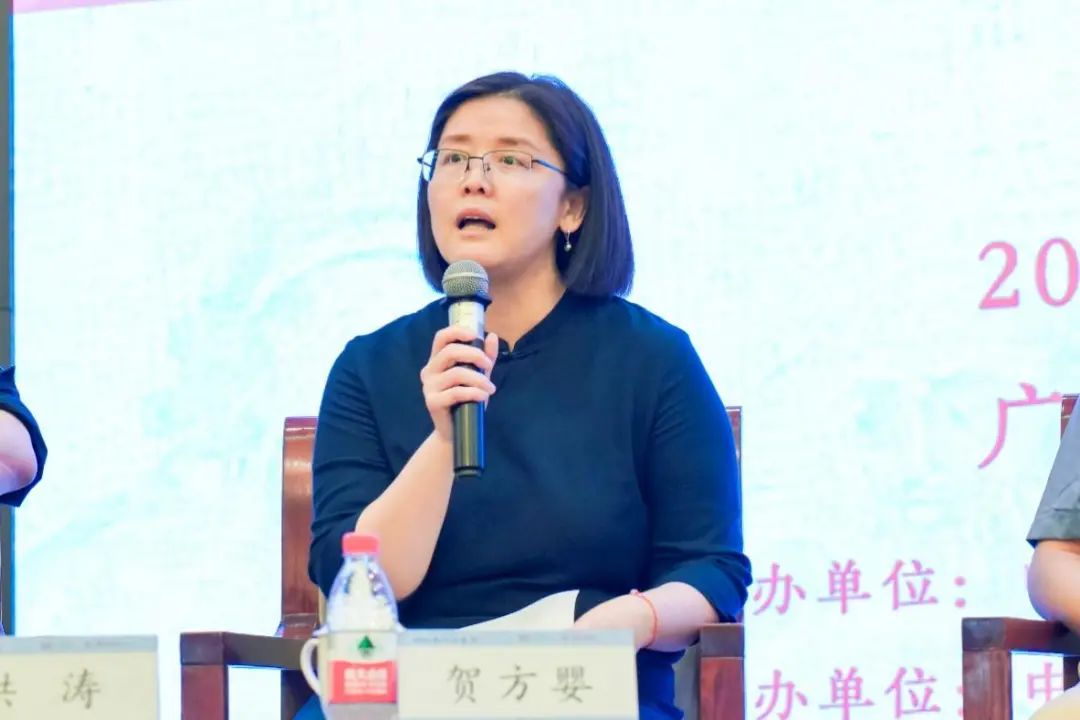
I extend my heartfelt gratitude to the host! Being appointed to deliver the opening remarks for the roundtable discussion fills me with both trepidation and reflection. I recall that the Inaugural National Classical Studies Annual Conference was hosted by the Boya (Liberal Arts) College and the Classical Studies Research Center at Sun Yat-sen University. This year marks the 11th annual conference, and it feels as though Chinese classical studies are returning to their roots—a true sense of "coming home" as we return to Sun Yat-sen University and the Boya (Liberal Arts) College. Having been designated to deliver the opening remarks, and as a participant in the first annual conference, I would like to share some humble reflections on the 12 years of growth in the field of classical studies.
The Inaugural Classical Studies Annual Conference was held in Zhaoqing, Guangdong in 2012. Reflecting on the journey of these 12 years, the development of both the Association and the discipline, though fraught with challenges, has been nothing short of remarkable. However, one might argue that the origins of classical studies can be traced back to October 2003, when the SDX Joint Publishing Company in Shanghai published Classici et Commentarii Journal 1: The Tension of Classics and Interpretation, edited by Liu Xiaofeng and Chen Shaoming. Over more than two decades, this academic journal has seen 63 issues released. As the designer of the journal, Liu Xiaofeng consciously incorporated both Chinese and Western classics into the research perspective from the outset. The first issue featured nine articles on Chinese studies and four on Western studies. It can be said that conducting Chinese classical studies from a comparative perspective of East and West has been the original aspiration of Chinese classicists. Many of us in the same occupation present today can undoubtedly empathize with the hardships and difficulties faced in the discipline construction of classical studies over the years. After more than two decades of discipline preparation, we might cautiously pose the question: Has the era of Chinese classical studies arrived in the context of mutual learning among civilizations?
I stand before this esteemed conference to report that, from last spring to early summer this year, the field of classical studies in China has experienced a remarkable surge in development. First, the academic journal Research in Classics which began as a scholarly series in March 2010 and published 40 issues, was officially launched as a journal last September. The latest exciting news is that starting in 2025, Research in Classics will be converted to a quarterly, available both in China and abroad. For classical researchers across China, having an official professional academic journal provides a national platform for the exchange and publication of the latest research findings in classical studies. At this conference, many of us in the same occupation expressed their delight upon meeting, celebrating the inaugural issue of Research in Classics. Indeed, the official launch of this journal marks a milestone in the history of the development of classical studies in China. Furthermore, on December 14 last year, the Chinese Academy of Social Sciences officially established Division of Classics, and on February 27, 2024, the CASS formally approved the establishment of the institute-level center for classical civilization research. Upon hearing this joyous news, the renowned classical scholar, Emeritus Research Fellow Wang Huansheng, exclaimed with emotion, "At last, our classical studies have found a home!"
However, following these exhilarating tidings comes a weighty responsibility. To be honest, for scholars, institutional measures merely provide a framework; the crux lies in what content we choose to fill this framework with, and how we go about doing so. If we assert that the era has bestowed upon us such a tremendous opportunity for the growth of this discipline, then it behooves all classical researchers to contemplate and deliberate on how we might rise to the occasion and honor these historic opportunities without falling short of the expectations of our time.
From this perspective, it is indeed essential to engage in a discussion on some highly practical issues today. All the scholars present here are the pillars of the Chinese classical studies community, and I would like to pose a few questions to seek guidance from my esteemed colleagues.
The primary question at hand is how to establish the discipline of Western classical studies in China. It is well-known that within the Chinese academic context, the scope, methodology, and objectives of classical studies have long been subjects of debate. To this day, classical studies have not been formally recognized as a distinct academic discipline in China, with scholars of classical studies dispersed across traditional fields such as literature, history, philosophy, and law. If we are to develop the discipline of Classics, what precisely should this discipline encompass, and upon what foundations should it be built? Over the past 12 years, the mission of the Classical Studies Committee of the Chinese Comparative Literature Association has been to ground itself in the traditions of Chinese civilization, drawing from the wisdom of both Eastern and Western classical civilizations to explore and harness intellectual resources and new dynamics that can propel the development of the modern world. This mission reflects our association's original intent. However, underlying this is a crucial question: why should we endeavor to advance classical studies?
The second question pertains to how we define the boundaries of classical studies as a discipline. Should modern disciplines that study other ancient civilizations, such as Assyriology, Egyptology, Persian studies, Indology, and even Jewish studies, be incorporated into the framework of classical studies in China? The third question asks whether classical studies should focus more on the interpretation and research of ancient classical texts or on the collation and textual criticism of literary works. Should the study of archaeological artifacts, including ancient architecture, inscriptions, sculptures, caves, and paintings, also be encompassed within the realm of classical studies? These latter two questions may indeed touch upon certain technical aspects. Naturally, how one pursues scholarship is entirely dependent on personal disposition and academic interests. On the other hand, we might also need to consider how to align individual scholarly pursuits with the broader aspirations of Chinese civilization. Therefore, even within the discipline of classical studies, I believe there are still many issues worthy of exploration today.
As the first established institution dedicated to classical studies in China, the Division of Classics of the Chinese Academy of Social Sciences has a clear objective to develop classical studies with Chinese characteristics. For my colleagues and me, our personal research is always imbued with a deep concern for Chinese civilization. I believe that we must continue to strive to advance this discipline since our generation has been chosen by the times.
The pressing question that concerns everyone now is whether classical studies should be elevated to a first-level discipline. In the context of emerging interdisciplinary fields, has the time come to propose to the state the establishment of classical studies as a first-level discipline? The motivation here is quite straightforward: to ensure that students currently engaged in classical studies will not face questions of academic legitimacy in the future. Our generation has grappled with such issues: is it legitimate to study Homeric epics within a philosophy department? Is it appropriate to explore Plato within a Chinese literature department? I believe that these questions that have troubled our generation will find a resolution for them if classical studies can be established as a first-level discipline in the future. These young scholars will be able to contribute to a comprehensive and distinctly Chinese classical studies framework, producing more exemplary works within a formal academic structure.
These are the questions I have posed to the esteemed teachers present here. Thank you.
Wu Fei: "Classical studies continually advance amid a triad of tensions."
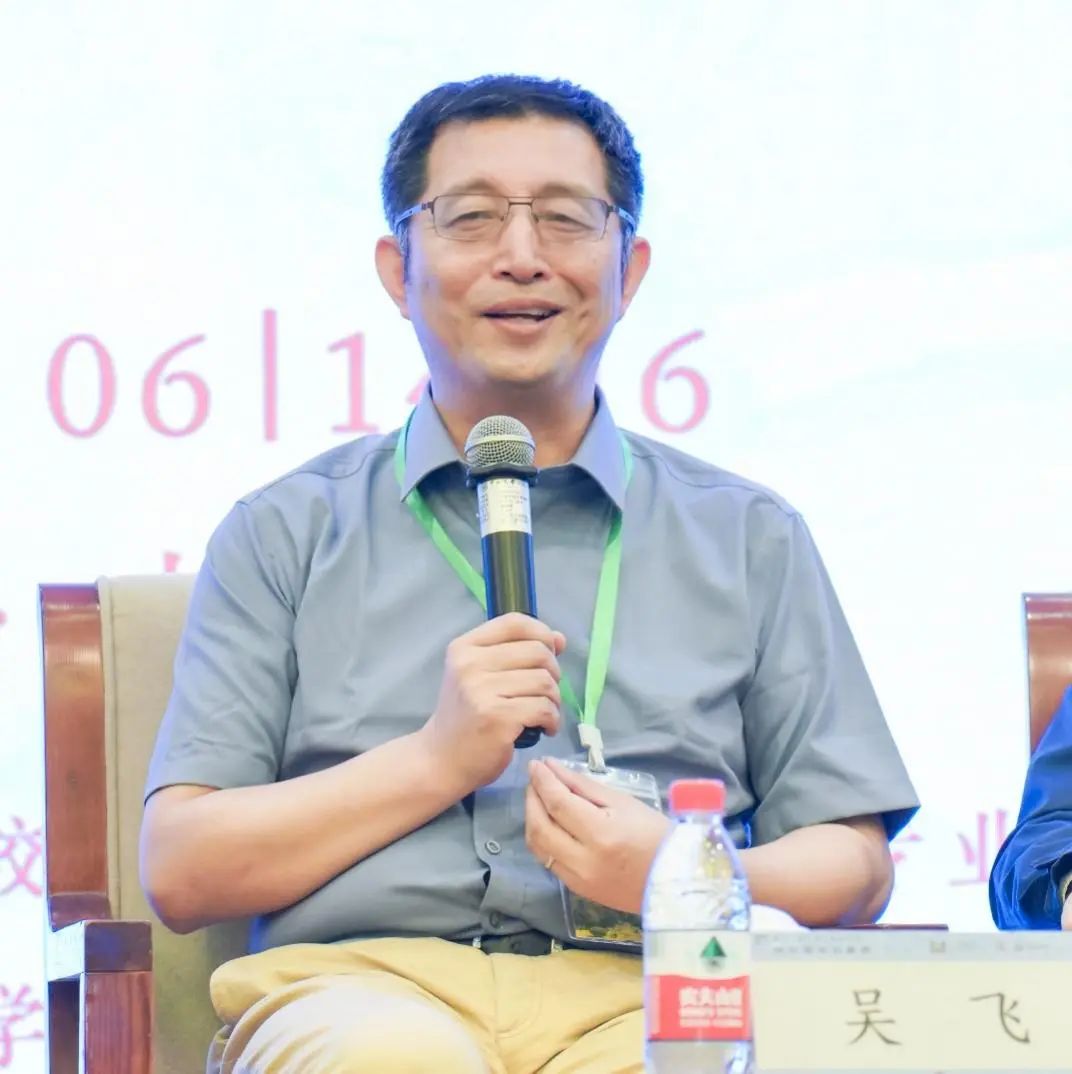
I shall continue from where Research Fellow He left off. She expressed a remarkably optimistic outlook, which reminded me of a saying by Professor Gan in the 1980s: "Heaven does not forsake us, so we must not forsake heaven." This was one of Professor Gan's most renowned statements from that era. Unlike Fangying, I am not as optimistic. There remains a significant difference between our current situation and the early days of Professors Liu Xiaofeng and Gan in the 1980s. On one hand, I do concur with Research Fellow He that, thanks to the years of dedication by our colleagues in classical studies, we have indeed reached a pivotal moment to undertake something truly distinctive. During the third annual conference, we held a meeting focused on the teaching of The Republic. A decade ago, there were not as many quality translations of Plato. Now, we have two excellent new translations of Plato's works, a testament to our years of accumulated effort. At this conference, I noticed new faces each year; many young friends who initially attended as students have now become key figures in various universities. In the first two or three conferences, many papers were quite immature and undeveloped. However, they have improved significantly over time. The progress and development in both Chinese and Western studies are undeniably evident.
Simultaneously, I must assert that opportunities and crises coexist. Classical studies have never been merely an academic discipline; they are intrinsically linked to the overarching trajectory of our civilization's development. I recall discussing the three tensions within classical studies at the annual conference at Tsinghua University in 2019. The first is the tension between East and West, the second is between the modern and the classical, and the third is between textual criticism and philosophical interpretation. We continue to navigate these three tensions today, not with the aim of resolving or dissolving them, but rather to develop in their framework. While we speak of the ancient classics, we remain firmly rooted in the modern; indeed, classical studies as a discipline are inherently modern. The ancients did not have classical studies; it is the modern era that necessitates this field due to the tension between the modern and the ancient. The study of classics has never been about revivalism but about contemplating the fate of our modern civilization. The same applies to the East-West dynamic; we cannot fully Westernize, nor can we indulge in self-aggrandizement or insularity. I believe the greatest advantage of the Classical Studies Committee is its constant awareness of this balance, consistently upholding the importance of both Eastern and Western perspectives. Discussing Chinese studies cannot be purely about Chinese studies; it must incorporate an awareness of Western issues. Similarly, engaging with Western studies is not about Westernization or merely aligning with international standards, but about addressing our own questions.
A hallmark of classical studies is its inherent exclusivity; it is not a discipline accessible to just anyone. This sets it apart from the more recent trend of so-called "national studies," which have gradually become a field open to all. Classical studies, whether in the Western or Eastern tradition, demand a certain threshold of expertise. Without training in ancient Western languages or Chinese classical scripts, one cannot truly engage with classical studies. However, we must not be constrained by these "thresholds." For instance, during the Qing Dynasty, scholars like Dai Zhen harbored grand philosophical ambitions. To advance in philosophical thought, they needed a solid foundation in elementary studies. Yet, the deeper they delved into these foundational studies, the more they realized their inadequacy, ultimately abandoning their philosophical pursuits to dedicate their lives to elementary studies. Consequently, the Qianlong-Jiaqing School appeared to focus solely on textual criticism and philology, with elementary studies becoming its most significant aspect. The same is true for Western studies; learning classical languages was initially intended to understand classical thought, to comprehend figures like Homer and Plato. However, as Research Fellow He mentioned earlier, archaeology has now become the focal point, overshadowing the original intent. In China, a similar situation arises where people distrust traditional texts and Sima Qian's accounts, placing their faith only in unearthed documents. In Greece, the focus is solely on excavated artifacts, and because archaeology cannot verify some of Homer's narratives, his works are deemed unreliable. This trend deeply concerns me. Whether in Chinese or Western studies, if we reduce scholarship to mere elementary textual criticism, we lose sight of our true purpose.
I believe that contemporary classical studies continue to navigate in these three tensions. When I mentioned these tensions earlier, it was not with the intention of resolving them, but rather to emphasize that they should accompany our research at all times. For us, classical studies represent a force of civilization, rather than a constraint of discipline. If it were to become merely a disciplinary limitation, the negative impact might outweigh the positive force. I am grateful for everyone's perseverance over the years, which has led to the creation of the current collaborative environment we all share today.
In the present day, whether domestically or internationally, in reality or in academia, we are confronted with a multitude of challenges, many of which remain obscured from our view. It is imperative that we consistently uphold the principles of scholarship, approaching these issues with the integrity befitting a scholar, and gradually working towards their resolution without undue haste. Thus, classical studies continue to advance amid tension, and I believe we can sustain the current vibrancy of our academic and intellectual pursuits. Thank you!
Ding Yun: "From Minor Classical Studies to Major Classical Studies"
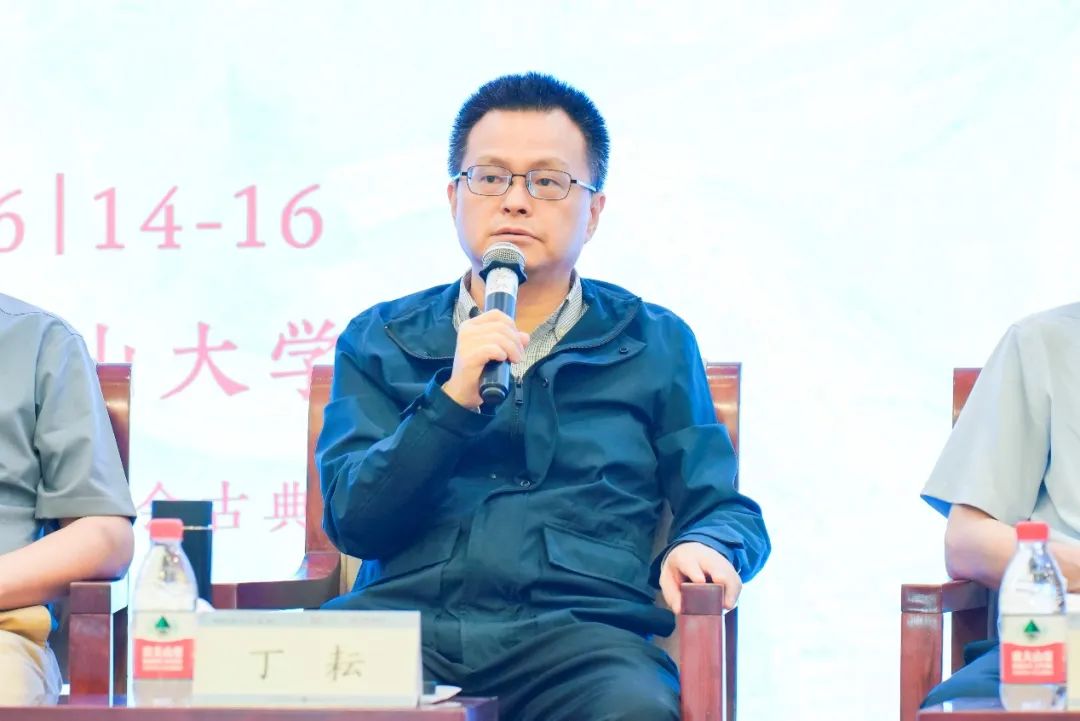
I shall continue the discourse initiated by these esteemed professors. The journey of Chinese classical studies has been fraught with challenges. It can be summarized in several stages. Initially, classical studies were merely a spontaneous movement or trend in the academic community, far from being recognized as a formal discipline. In retrospect, the gestation and promotion phases of the classical studies movement preceded the Inaugural Classical Studies Annual Conference by a significant margin. The inaugural conference was held in Zhaoqing, Guangdong in 2012, marking a full 12-year cycle to the present day. However, its inception can be traced back to the late 1990s and early 2000s, spurred by Professor Liu Xiaofeng's academic shift. I vividly recall Xiaofeng delivering a lecture at Fudan University titled "The Profound Meaning of Nietzsche's Words." Brother Hong Tao was present then, and I still remember him diligently taking notes. How old was I at that time? How old was Brother Hong Tao? We were about the same age as Su Hang is now. And how old is Su Hang? Su Hang is a young lecturer in the Department of Philosophy at Sun Yat-sen University. He was born in 1994. It has taken an entire generation for classical studies to reach its current state. Transitioning from a grassroots and spontaneous academic movement to gaining recognition in academia and gradually attracting national attention has been a formidable journey. This is the first point I wish to convey.
The second point is that classical studies are not only emerging as a discipline but are also becoming a prominent field, as the situation is exceedingly favorable. However, it is precisely in such favorable circumstances that we must remind ourselves to remain vigilant. Whether the situation is promising or challenging, the demands placed upon those in it are the same: courageous and clear-headed. What are the manifestations of this favorable situation? We are all aware that in the Western academic framework, classical studies are strictly defined, with only the study of ancient Greek and Roman classics being considered as such. Not only are the Chinese Four Books and Five Classics excluded from this definition, but even Shakespeare and Dante do not fall under the category of classics. This represents a very strict, high-threshold, and narrowly defined scope of what is considered "minor classics." However, over the past two to three decades, China's practice has unconsciously and gradually expanded beyond this narrow scope. First, being in China, we cannot dismiss the classical tradition of Chinese history and literature. The dialogue between Chinese and Western traditions has been ongoing for two to three decades. I am aware that the teachers present here, along with some students who study under the guidance of them, are engaged in this comparative scholarly vision. The first way to broaden the scope from minor classics to major classics is to expand from Western studies to include Chinese studies. Second, from its inception, classical studies have shown a trend towards interdisciplinary or cross-disciplinary construction. Strictly speaking, classical studies in the West are a modern discipline in modern universities, yet this discipline does not exist in Chinese universities. This discussion on "discipline construction of classical studies" arises because, in the categories of Chinese academic disciplines, classical studies are absent. Nevertheless, scholars from various disciplines are independently engaging in classical research. In fact, Chinese universities possess a clear awareness of classical research, though it is dispersed across literature, history, philosophy, politics, economics, law, and sociology. Professor Hong Tao, from the Department of Political Science, holds a doctorate in law. His doctoral dissertation focused on ancient Greek political philosophy: "Logos and Space," a highly influential work at the time. Professor Wu Fei pursued his doctoral studies in sociology and anthropology, and now he is affiliated with the discipline of religious studies. Both scholars operate in the modern academic system, yet their research materials are rooted in classical studies. These two individuals, coincidentally seated beside me, exemplify how, even in the spontaneous phase of the Chinese classical studies movement, scholarly exploration has transcended disciplinary boundaries.
Nearly two decades ago, Fudan University established the Center for the Study of Intellectual History, which inherently functions as an interdisciplinary hub. Each field—literature, history, philosophy, politics, economics, law, and sociology—boasts its own historical narrative, such as the history of philosophy, historiography, and literary history. In essence, the texts studied across these disciplines are remarkably similar. The distinctions between disciplines are less pronounced than those between Chinese and foreign studies. For instance, in these fields, the "histories" originated from Chinese scholarship (such as the history of Chinese philosophy, historiography, or literary criticism) all engage with the same primary materials, differing only in academic approach and methodology. They all, for example, draw upon Confucian texts. Similarly, the source materials for Western political history, legal history, and the history of Western philosophy overlap significantly, featuring figures such as Plato, Aristotle, and Cicero. Conversely, there exists a deeper chasm between sub-disciplines in a single field, such as the texts of history of Chinese philosophy versus those of history of Western philosophy. If the classification of research subjects should influence academic categorization, then the modern university's disciplinary divisions indeed exhibit a certain disarray when confronted with classical texts. This prompts us to reconsider whether there is an intrinsic academic need in various disciplines to consolidate the classical content scattered across different academic categories into a unified field termed "Classical Studies." This field would encompass, but not be limited to, the study of Greco-Roman classics. In other words, as the Chinese classical studies movement initially suggested, the emerging related disciplines in China should embody a comprehensive classical studies approach. One might ask whether the time is ripe for this comprehensive classical studies movement to give birth to a new discipline. This grand classical studies field could, in its academic structure, retain but transcend the boundaries of civilization or culture (such as the East-West divide) and the temporal boundaries (such as those between Homer and Shakespeare), as well as surpass the original boundaries of first-tier disciplines (such as literature, history, philosophy, politics, economics, law, and sociology). On this issue, it is evident that the participants in the current roundtable discussion are both cautious and exhilarated. I believe this matter extends beyond the confines of a roundtable meeting; it is a serious, long-term consideration for all those engaged in classical studies. Thus, I present this issue to everyone. Our generation is aging, and the task of building this discipline awaits the successors—the generations born in the 1980s, 1990s, and even the 2000s.
Regardless of how it is discussed, I must reiterate that classical studies, no matter how extensively they expand, remain a modern discipline in contemporary universities. Even at its most expansive, it retains this character. It is a discipline that consciously critiques modernity, which is quite unique. When we discuss studies of Confucian classics in universities today, it is no longer the same as the ancient scholarly traditions passed down through teachers of Confucian classics and families of hereditary power and influence. Instead, it is studies of Confucian classics in the framework of modern academic systems. This is a point I feel compelled to emphasize to everyone present, including myself, as a reminder to remain vigilant.
Chen Jianhong: "How can classical studies be effectively applied as a discipline?"

When discussing classical studies and the construction of discipline, Ding Yun recently touched upon the issue of departmental structures. Having been directly involved in the discipline development in departments, I shall first address how to implement these ideas in the context of the Boya (Liberal Arts) College. To establish classical studies as a recognized discipline, we must first confront a myriad of practical challenges. The discourse surrounding classical studies and discipline development is, in fact, a perennial issue faced by the Boya (Liberal Arts) College of Sun Yat-sen University. Boya (Liberal Arts) College admits 30 undergraduates per class through a secondary selection process. After four years of education, these students can choose to graduate in one of six disciplines, including literature, history, philosophy, politics, sociology, or law. This necessitates that, in the latter two years of their undergraduate studies, students engage and communicate with faculty from both Boya (Liberal Arts) College and various specialized departments. It is important to note that Boya (Liberal Arts) College itself does not confer a liberal arts degree. Ultimately, graduates of the Boya (Liberal Arts) College receive degrees from one of these six specialized departments.
If classical studies become a discipline, a pertinent and practical question will arise: will it be founded as a distinct entity beyond literature, history, philosophy, politics, sociology, and law, or will it merely stand as an interdisciplinary fusion? As Wu Fei mentioned earlier, this presents both an opportunity and a challenge. The specific issues faced by different institutions can vary significantly. For instance, the Boya (Liberal Arts) College of Sun Yat-sen University differs from the Liberal Arts College of Chongqing University. The latter assumes the responsibility of developing the humanities across the entire university, whereas the former is an autonomous academic unit that exists independently from the departments of literature, history, and philosophy. Consequently, the challenges they encounter are distinct. Nonetheless, our educational models are fundamentally rooted in the essence of classical studies, emphasizing the reading of classical texts. This approach aligns seamlessly with the discipline development of classical studies.
When discussing classical studies, the conversation just now revolved around the Inaugural Classical Studies Annual Conference. Ding Yun traced the development of Chinese classical studies back to an earlier period, specifically when Professors Gan Yang and Liu Xiaofeng initiated the classical studies movement. The Classical Studies Research Center at Sun Yat-sen University was established even before the formation of the Association. Under the leadership of Professor Liu Xiaofeng, the center initially operated in the Department of Philosophy. Later, when Professor Liu Xiaofeng left Sun Yat-sen University for the capital, the center transitioned from the Department of Philosophy to the Boya (Liberal Arts) College, with Professor Gan Yang assuming the director. Currently, the center is headed by Vice President Xie Shi. The Boya (Liberal Arts) College has consistently engaged in classical studies education and interdisciplinary, multi-disciplinary practices. Naturally, there have been numerous challenges and controversies along the way, which require continuous effort to overcome and enhance. While the discussion of discipline development and talent cultivation are two distinct matters, they are indeed complementary. Over the course of two to three decades, the field of classical studies has gradually developed a substantial research community.
Let us return to classical studies. As Ding Yun mentioned earlier, in the Western discipline framework, classical studies are strictly defined, focusing solely on the studies of ancient Greek and Roman classics. However, the development of classical studies in China has undoubtedly broadened this narrow definition. It is essential to distinguish between the classical and the canonical, such as how figures like Shakespeare and Petrarch are integrated into the classical studies framework. The Boya (Liberal Arts) College emphasizes a curriculum centered around core texts and courses, engaging with the classics of both Eastern and Western civilizations and classical languages. Last year, the college resumed its undergraduate admissions, thereby reviving the classical education philosophy established by two pioneering scholars at Sun Yat-sen University. Graduates from the Boya (Liberal Arts) College are now demonstrating their vitality across various universities and industries nationwide, gradually showcasing the effectiveness of our talent cultivation. We aspire for more students from the Boya (Liberal Arts) College to carry forward its ethos and continue to deepen research in classical studies. The students we have nurtured have not disappointed this era.
When engaging with educators from various disciplines, I occasionally inquire, "What are your thoughts on the students nurtured under our liberal arts model?" The feedback on this matter can sometimes be quite polarized. Some educators hold a favorable view, appreciating that students cultivated through the liberal arts approach exhibit a distinct style and perspective compared to those from specialized departments. Specialized faculties often adhere to a systematic training model, focusing on comprehensive courses such as general history or introductory subjects. In contrast, the liberal arts model primarily revolves around texts and classics, leaving a unique impression on the educators who receive graduates from the liberal arts college. If a professor places significant emphasis on the comprehensive foundational knowledge of their students, they might express dissatisfaction. Conversely, those who value a broader research perspective in their students may find themselves more content. This dichotomy aligns with the concerns previously mentioned by various educators regarding the future development of classical studies and the establishment of a first-tier discipline, as we continue to address questions related to existing disciplines and talent cultivation.
From my perspective, the establishment of the discipline of classical studies holds immense significance, as we indeed confront the challenge of transcending traditional disciplinary boundaries. Furthermore, there is a genuine necessity to broaden the scope of classical studies beyond its narrow Western definition, such as by incorporating the Chinese tradition of classics and history. Consequently, we must contemplate how to encompass all these elements to forge a more expansive, interdisciplinary field that bridges ancient and modern, East and West. In truth, the fundamental issues we face in classical studies and discipline development are, on one hand, the question of the Ancients and the Moderns discussed by various scholars, and on the other, the question of Chinese-style modernization. As China continues to develop, we must consider what new insights classical studies can offer for our path of modernization. I believe this represents a crucial challenge we will encounter in the future development of this discipline.
Ke Xiaogang: "Maintain the innocence of a classical spirit and return to the origins of classical creation."
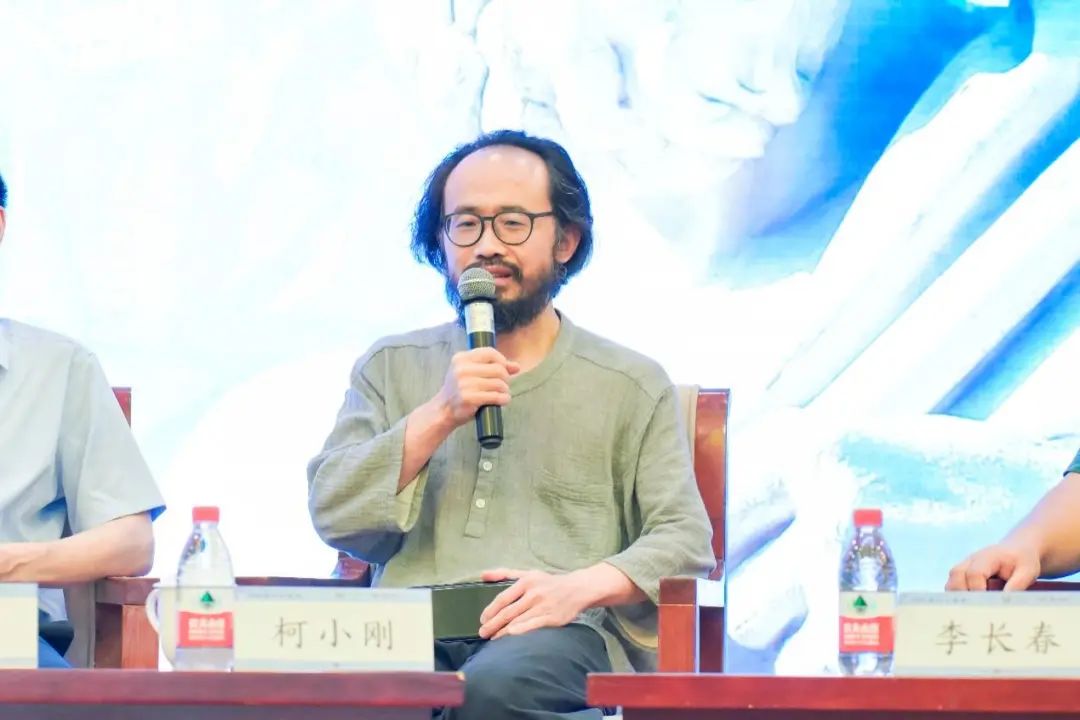
Reflecting on the development of contemporary Chinese classical studies over the past decade evokes a profound sense of wonder. It seems that neither in the West nor in ancient China has ever existed a form of classical studies quite like that in present-day China. Scholars from diverse fields and backgrounds converge here to engage in extensive research on ancient Chinese and Western classics. They do so with a deep sense of contemporary relevance and concern for the times, undertaking highly academic work. Yet, they are not content with mere academic formalism; instead, they maintain a lucid and critical stance toward modern academic scholarship. This approach, which seeks to use the classical to shape the future and redefine the modern, is exceedingly rare and remarkably unique.
Reflecting upon history, whether it be the evolution of Western classical studies or the development of ancient Chinese classical studies, both have traversed similar stages of progression. Initially, there existed a profound aspiration towards the Dao, an original vitality emanating from the foundational texts of civilization, a sensitivity to the pressing issues of the era, a deep concern for the human condition, a critique of the status quo, and an imaginative vision of a better life. From this starting point, there arose a reverence for the divine order, a dedication to studying the classics, and a dialogue between one's own life and the ancient texts, encapsulated in the notion of "I annotate the Six Scripts, and the Six Scripts annotate me." However, as the study of these classics became increasingly detailed and complex, and as academic institutions became more established, classical studies gradually turned into an appendage of bureaucratic systems, and classical studies became a dispensable embellishment in the academic industrial system. Contemporary Chinese classical studies are still in their nascent stage, brimming with creative vitality and boundless possibilities. Yet, after more than a decade of development, they are on the path to gradual maturity. At this juncture, reflecting on the original intentions of the classical journey may prove to be a more arduous and urgent task than developing a prosperous discipline.
I am reminded of an article penned many years ago by Professor Liu Xiaofeng, which had a profound impact at the time, titled "The Encounter of Classical Spirits between the East and West." This piece laid the foundation for the essential qualities and fundamental problem awareness of contemporary Chinese classical studies. In fact, since the time of Confucius, ancient China has been engaged in the compilation of classical texts with a forward-looking vision toward future civilized life, reinterpreting these classics through reflection and dialogue with the issues of the era, and striving for a unity of knowledge and action through individual self-awareness and self-improvement. However, as the centuries passed and disciplines became more specialized, the critical and creative spirit that originated from the depths of the classics gradually weakened, eventually descending into a superficial prosperity of knowledge and a substantial spiritual void, increasingly losing the vitality of thought and the original impetus of life. Such process can also be seen in the history of Western classical studies. Initially, the organization, translation, and study of Greek and Latin texts were, in fact, a social movement—a movement of thought and society manifested in academic form, which had a profound impact on the trajectory of Western civilization. Yet, as the discipline development of Western classical studies became more refined, research grew increasingly detailed, and classical studies were gradually absorbed into the modern academic system, transforming into a scholarly form that is ever more profound yet increasingly narrow.
At present, contemporary classical studies in China stand at a pivotal juncture, a crossroads where the future direction must be chosen. I believe this moment marks the dawn of a Chinese era for classical studies. Whether classical studies can maintain its original pursuit of the Dao and assist Chinese Confucianism in returning to its ever-creative roots depends on the self-awareness, self-determination, and proactive actions of today's Chinese classicists. Over the years, at each classical studies annual conference, I have sensed a clear generational transition. An increasing number of young people are joining the field of Chinese classical studies, particularly those who have received rigorous training abroad and those who have undergone increasingly solid Confucian training domestically. These young scholars possess stronger linguistic and textual skills compared to the previous generation. However, the era's concerns, classical spirit, and existential depth once embodied by the likes of Professors Gan Yang and Liu Xiaofeng seem somewhat lacking in the younger scholars. Naturally, this requires prolonged immersion in the classics and the honing of life experiences to gradually develop. In the classical sense, growth is not merely a journey towards maturity but a return to the harmonious blend of substance and refinement. In the future development of classical disciplines, whether we can continually return to our starting point, maintain youthful creativity while maturing, and preserve an eternal classical innocence, may be the greatest challenge in the construction of classical studies.
Li Changchun: "The Inclusivity, Reflectiveness, Critical Nature, and Constructive Aspects of Classical Studies"
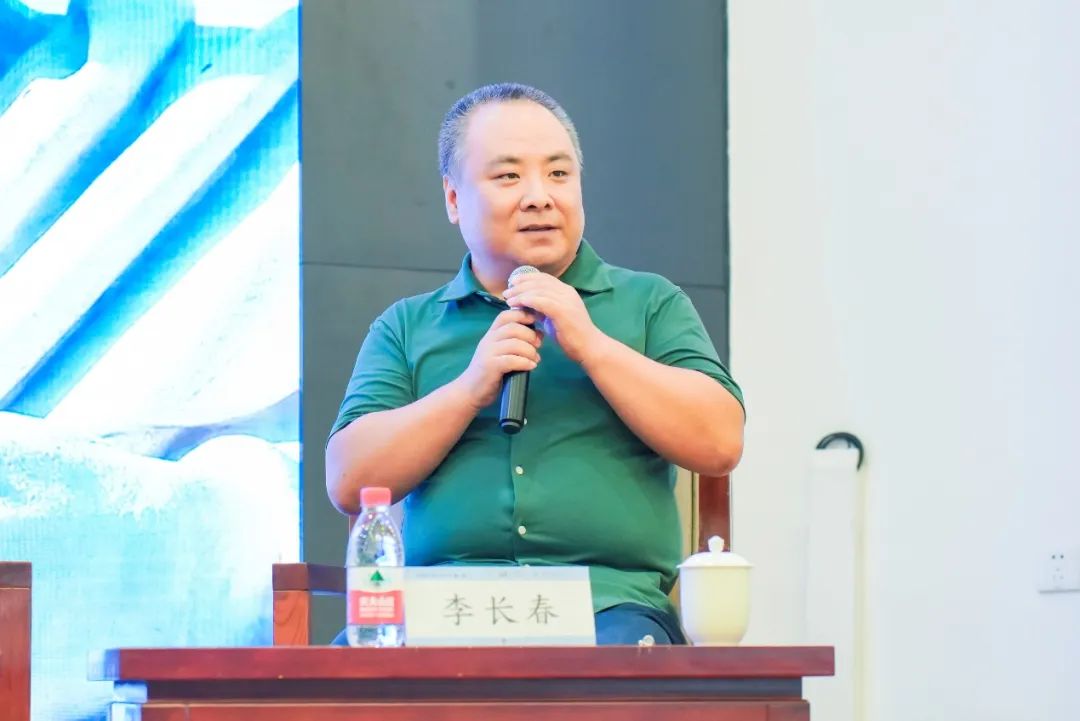
Following the comprehensive elucidation of this issue by several esteemed professors, the discourse surrounding both the positive and negative aspects of classical studies discipline construction has been thoroughly presented. However, I wish to add two further considerations. First, why is it necessary to establish the classical studies discipline? Second, what kind of classical studies discipline should we aim to develop?
My own journey, alongside that of He Fangying, and esteemed colleagues such as Chen Bisheng, Lin Zhimeng, and Wang Chengjiao, is intrinsically woven into the tapestry of the evolution of Chinese classical studies. I believe our academic experiences have serendipitously mirrored every phase that Chinese classical studies have undergone. In this regard, we are indeed a fortunate generation, uniquely positioned to witness the emergence of a new scholarly paradigm amidst fervent debate—an experience neither our predecessors nor successors have had in such abundance.
Several years ago, when I first began to employ the term "Classical Studies Movement," it was met with considerable astonishment. I believe it was during the Classical Studies Annual Conference in Hainan in 2022 that I first used this term in a formal setting. After the conference concluded, a friend approached me, inquiring whether classical studies could indeed be termed a "movement." At that moment, I hadn't fully contemplated how to respond. However, at this year's annual conference, I was delighted to observe that several professors who spoke before me not only used the term but also seemed to embrace the concept of a "Classical Studies Movement." I believe that if we can reach a fundamental consensus on viewing classical studies as a "movement," it signifies a foundational, underlying agreement on the intellectual and academic journey China has traversed over the past two decades. Professor Ding Yun mentioned earlier that the inception of the Classical Studies Movement could be traced back to the intellectual transformation of Professor Liu Xiaofeng at the end of the last century. In my view, this transformation was marked by an emphasis on the profound study of Western classics and a renewed understanding of the West. Why is there a need to reinterpret the West? It is because our previous understanding of Western civilization was insufficient. We must revisit the great Western classics and the interpretations of these works by Western scholars. Such an intellectual orientation, when extended to Chinese studies, implies that we should also re-evaluate Chinese civilization, re-examine its core classics, and understand how the sages throughout Chinese history have interpreted these seminal texts.
The resurgence of Confucian classics studies in the realm of philosophy, or at the very least, the renewed attention and substantial scholarly effort devoted to it by historians and philosophers, along with the subsequent two-decade wave of classical studies revival, can be seen as a manifestation of the classical studies movement in the sector of Chinese studies. The revival of Confucian classics studies in contemporary China presents a complex spectrum and diverse forms. Although among its advocates or leading figures, significant variation exists in understanding the revival of Confucian classics and the reasons behind this wave, it is inevitably an integral component of the broader classical studies movement in the contemporary Chinese academic landscape.
As we progress to the present day, we observe a scene familiar to most of us: a remarkable surge in the number of educators proficient in teaching Western classical languages in the realm of Western studies, all in a relatively short span of time. Prior to this, around the end of the last century, the number of faculty members capable of teaching Western classical literature or engaging in ancient world history research was exceedingly limited in most universities, let alone those who could instruct in classical languages. One of the outcomes of the rise of the classical studies movement is that it has, at least at the academic level, filled the gap in teaching and research personnel in the disciplines of history, Chinese literature, and philosophy. This represents a fundamental achievement, one that is evident through the quantitative relationships observed.
Amid the wave of the classical studies movement, we observe another intriguing phenomenon. Before 2000, a scholar from the department of Chinese literature specializing in classical texts would never consider a historian researching Greek or Roman history as a peer; conversely, a scholar of ancient Greece or Rome would likely be unaware of the pursuits of those in the department of Chinese literature focused on classical philology, nor would they contemplate any connection between their respective fields. However, the rise of the classical studies movement has brought these seemingly unrelated individuals together, encouraging them to seek common ground for dialogue and initiate discussions. This unprecedented development has significantly contributed to the advancement and integration of Chinese scholarship. On the most superficial level, this is the tangible and perceptible contribution of the classical studies movement to Chinese academia. Furthermore, we observe that from our generation onward, and even among younger scholars, there is an increasing number of individuals who, while engaged in Chinese studies, also delve into Western classics, or who, while pursuing Western scholarship, dedicate substantial time to reading Chinese classics. Although they may not explicitly label their work as classical studies, I believe that as a result of the influence of the classical studies movement, they can indeed be regarded as classical scholars, or at least potential ones. Their work in bridging Eastern and Western classics essentially constitutes classical studies. This process can be succinctly summarized as the transformation of classical studies from a movement into an academic form.
However, the academic form of classical studies is precarious, with its very existence under immense pressure. For instance, a teacher specializing in Chinese studies who guides students through the works of Plato might face certain pressures in their professional departments. Similarly, a scholar of Western studies offering courses on the Book of Songs or the Book of Documents might be perceived as straying from their primary focus. Not to mention the challenges encountered in research and publication. To ensure the continuous perpetuation and flourishing of classical studies, and to eventually supplant the well-established and nearly exhausted fields of humanities research in existing departments, I believe that advancing the discipline of classical studies is imperative.
This is merely an academic rationale for establishing classical studies as a discipline, but there are other reasons as well. If you recall, approximately nine years ago, there was an article that circulated widely on the internet. What was the title of that article? The original name has likely faded from memory, as it was later given a sensationalized title by those who frequently reposted it: "Classical Studies Are Not of the Approach of Liu Xiaofeng." I have also forgotten who the author was, but the author's identity is not particularly important, as at the time, many people might indeed have believed that classical studies were not of "the approach of Liu Xiaofeng." However, it was precisely "Liu Xiaofeng's approach to classical studies" that exerted a profound and widespread influence, shaping the academic paths of Chinese scholars of classical Western studies and the intellectual spirit of Chinese classical studies. Thus, we must ask, what exactly is Liu Xiaofeng's "approach"
Liu Xiaofeng's "approach" to classical studies, in my opinion, can be encapsulated by the following characteristics:
The foremost characteristic is inclusivity, encompassing both ancient and modern, Eastern and Western traditions. While it draws upon Western classical studies as a reference point, its ultimate aim is to invigorate Chinese classics and their interpretations. It examines both Eastern and Western classical civilizations, yet its scholarly focus is on the existential conditions of contemporary individuals. One might say that the tension between the ancient and modern, East and West, serves as the fundamental driving force behind "Liu Xiaofeng's approach" to classical studies.
The second characteristic is reflectiveness. Classical studies primarily focus on reflecting upon modernity, grounded in the modern world. It represents the modern individual's contemplation of their own circumstances. To comprehend their existence in the modern world, individuals require intellectual resources that cannot be entirely derived from the modern world itself. Hence, they turn their gaze towards the classical, delving deeply into its exploration.
The third characteristic is critical thinking. The momentum of China's development and rejuvenation over the years raises a profoundly serious question: What does China's rejuvenation truly signify? It is not merely about replacing the United States, nor does it imply that we aim to become a second United States of America or a second West. Instead, it must shape a new form of human civilization. To forge this new form of human civilization, one cannot simply find a model in the existing forms of modern civilization; its creation requires theoretical resources and imagination. The latter can only emerge from the tension between ancient and modern, East and West, and cannot be a simple, predetermined entity ready for immediate use. This necessitates breaking free from the dogmatic theories that hinder our thinking, whether they manifest in philosophy or social sciences. Any social science is essentially based on a certain belief, forming a set of methodologies and theories upon this foundation. However, the foundational beliefs of these theories are generally unexamined; once they are scrutinized, it means stepping outside the boundaries of the discipline. Our independent knowledge innovation essentially means reflecting on the existing social sciences and the premises upon which they rely, exploring the essence of these premises. This inevitably becomes a philosophical endeavor, and such philosophical work must be grounded in the critical awareness provided by classical studies.
The fourth characteristic is its constructive nature. Although it takes classical civilization as its subject of study, its intellectual pursuit is directed toward the future of humanity. It persistently inquires into what is good, what is virtuous, what is noble and great, and what constitutes the ideal life that humanity should strive for. Classical studies must continually engage with these questions. In essence, it seeks to answer what the new civilization form that humanity can anticipate will take. For this reason, classical studies possess a more constructive quality than any other existing discipline.
Herein lies my humble understanding of the construction of the discipline of classical studies. Thank you all!
Hong Tao: "Our discussion serves as an introduction to the discipline construction of classical studies".
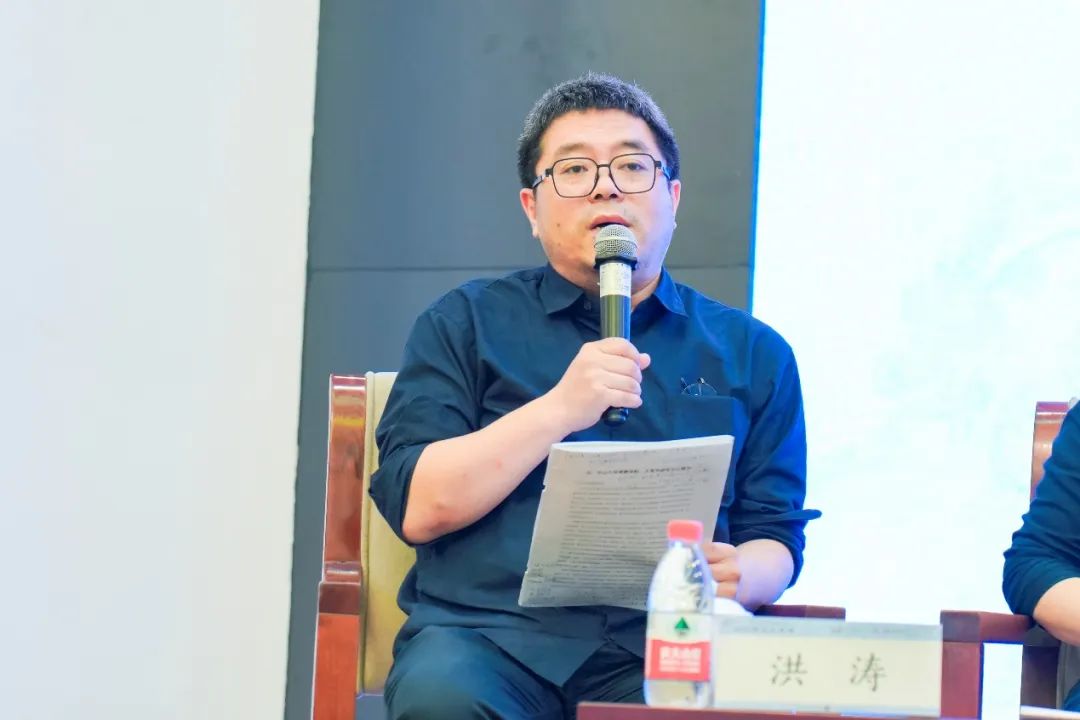
I extend my deepest gratitude to the six speakers for their remarkable presentations. Although I am engaged in the study of classical education and my research touches upon the realm of classical studies, I have not yet undertaken a comprehensive and profound contemplation of the subject. Thus, after listening to the insights shared by these six individuals, I find myself greatly inspired.
Professor He posed an intriguing question, suggesting that the development of classical studies has reached a point that could be termed the "moment of classical studies." Professor Wu Fei highlighted that the current state of classical studies presents both opportunities and challenges. Our exploration of Western studies is, in essence, a means to better comprehend the issues inherent in our own civilization. Our engagement with classical studies is fundamentally aimed at enhancing our understanding of the modern world. This resonates deeply with me, as we indeed inhabit the 21st century, an era that can aptly be described as the age of technology. Unlike the ancients, who faced the daunting task of navigating vast tomes, we now have the capability to carry all classical texts with us in a few gigabytes of electronic devices, complete with search functionalities. This is a reality that our predecessors could never have imagined, and it is a context we must not overlook when engaging with classical texts. Professor Ding Yun remarked that Chinese classical studies unfold in the tension between the Eastern and Western, the ancient and modern, endowing it with a unique character. This is a fundamental backdrop that must not be forgotten in our pursuit of Chinese classical education and research. Professor Chen Jianhong, drawing from the teaching practices at the Boya (Liberal Arts) College of Sun Yat-sen University, emphasized that the implementation of classical studies as a discipline is, in essence, a highly specific issue. As Professor Ke Xiaogang noted, the development of classical studies requires a concern for contemporary realities and an awareness of the times, while also acknowledging the inherent tension between classical and modern disciplines. Professor Li Changchun concluded the discussions by addressing the question of what kind of Chinese classical studies we ought to cultivate. He identified four key characteristics: inclusivity, reflectiveness, criticality, and constructiveness. Chinese classical studies are thus oriented towards the construction of a new form of human civilization.
Our roundtable discussion serves as a prologue to classical studies. The main body of this endeavor awaits completion through the collaborative efforts of those of us engaged in classical education and research.
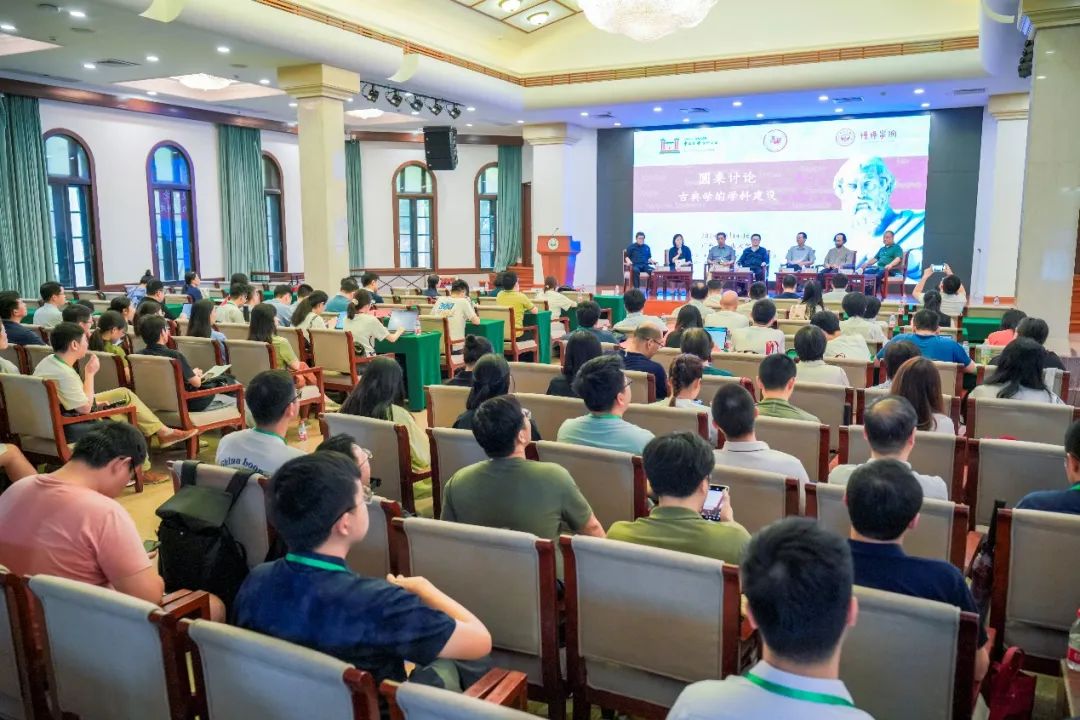
roundtable discussion




